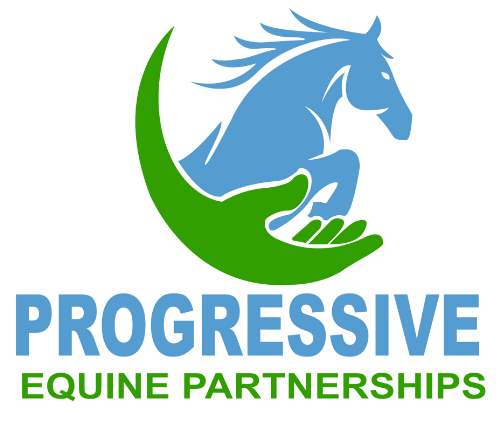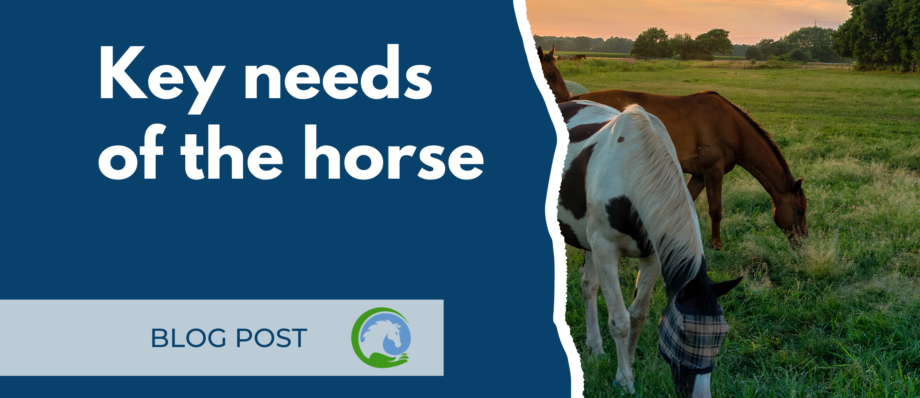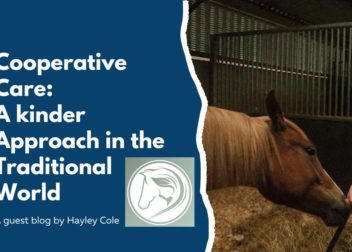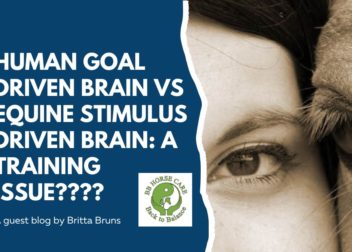Key needs of the horse
What humans think the horse wants and needs is often not inline with what the horse truly wants and needs. A human may prioritise having the latest equipment, all colour co-ordinated and branded but the horse is not at all concerned about these things. Behavioural scientists have found that horses prioritise the following behaviours that are key to their emotional and physical well being:
Safety
The most important need for the horse is reaction and response, also known as safety. This need for safety takes priority over all other needs. If the horse doesn’t feel safe he may not carry out normal behaviours such as eating, sleeping, exploring etc. The horse is a social animal and needs other horses in order to feel safe. Horses kept alone may feel unsafe but still perform tasks to survive such as sleeping, but this will be poor quality and can have a negative effect on the horses emotional state.
Equines are hard wired to seek out company even if they are in an environment with no risk of predators. Keeping them isolated goes against their natural behaviours and can cause distress, depression, and behavioural issues.
Food and Water
Second of the equines priorities is ingestion. Horses spend up to 18 hours a day foraging and will rarely go longer than 2 – 4 hours at a time without eating or browsing for food. Restricting the horses ability to forage and eat in a way that he has evolved to do can cause digestive problems such as stomach ulcers and colic.
Rest and Sleep
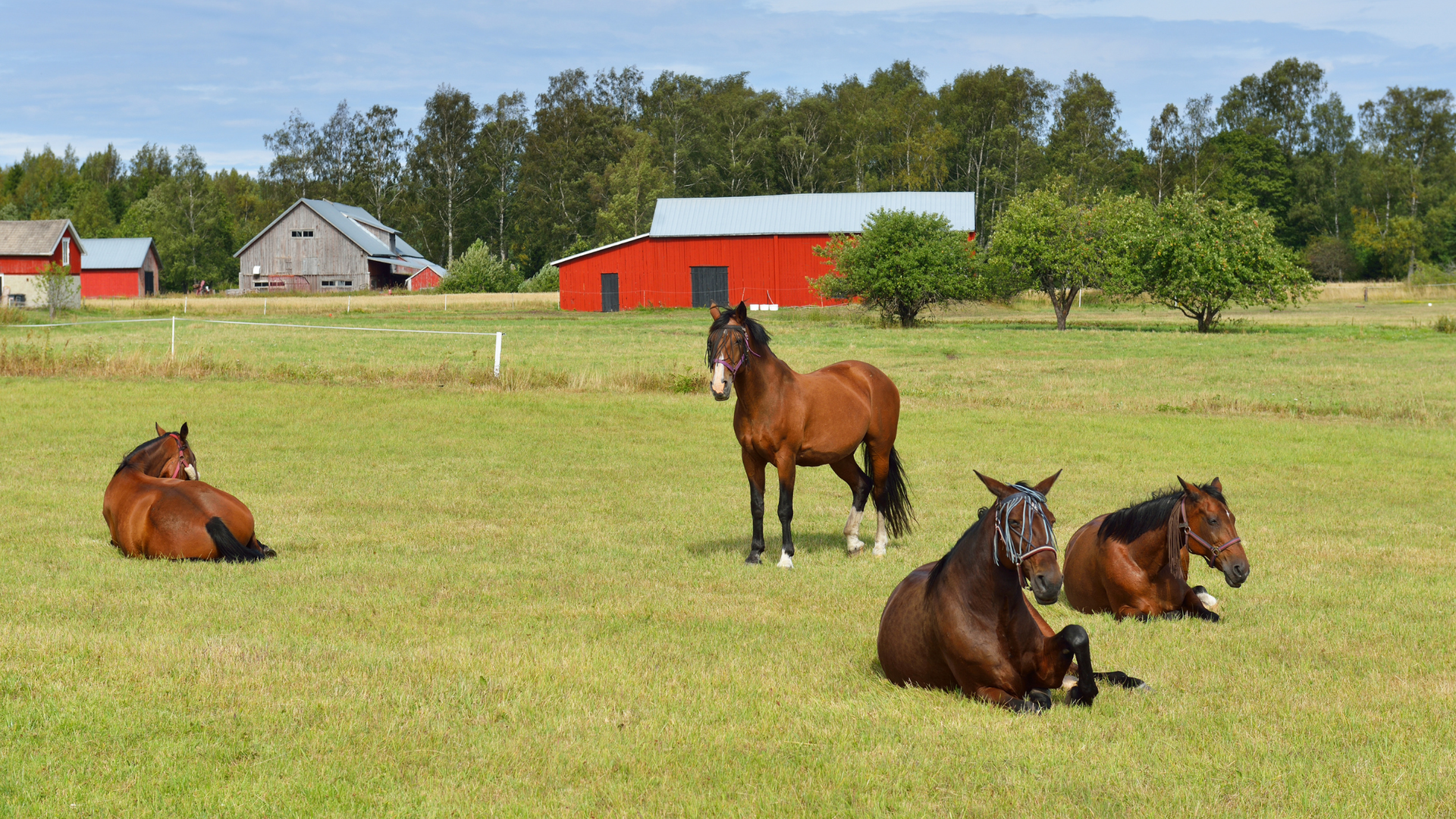
Studies show that the horse spends only about 25% of the day inactive. Inactivity can be Idling, drowsing, resting or sleeping. REM sleep is important to the sleep cycle because it stimulates the areas of the brain that are essential in learning and making or retaining memories. For horses to REM sleep he must be in his side with his legs out.
Body care
Urination, defecation, thermoregulation, stretching, grooming, rolling and mutual scratching and grooming all come under the key need of body care.
Motion and play
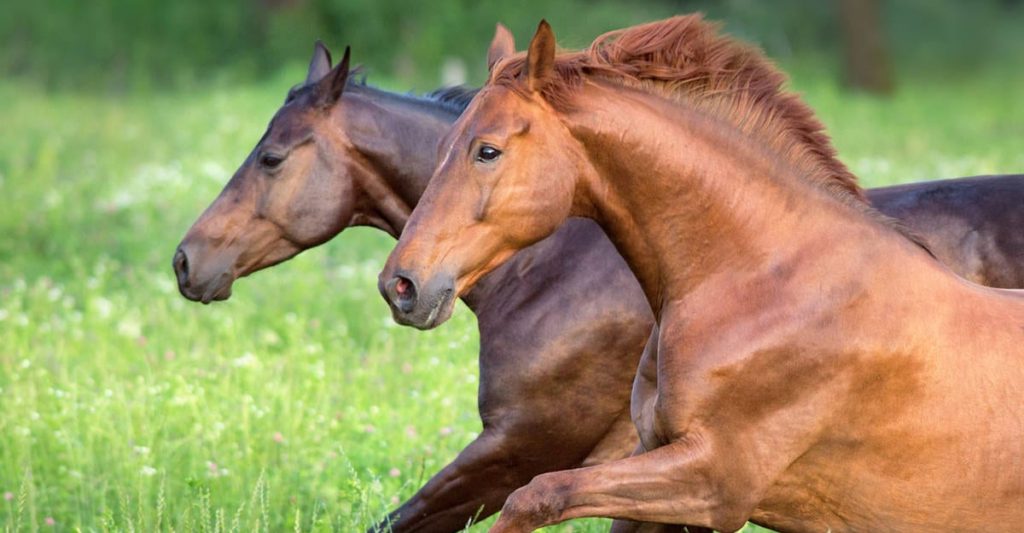
Moving around supports emotional health and aids blood circulation and lymphatic fluid circulation. Being able to move around enables the horse to forage for food and water.
Play both alone and socially is and important part of the equines development and emotional and physical wellbeing. Equines play together for many reasons, including:
• Enhancing fitness and strength.
• Learning communication skills.
• Building social relationships.
• Gaining knowledge of the environment.
Exploration
Exploring allows the horse to know his environment. He will explore to find water points, food sources, shelter and escape routes. Encouraging young horses to explore new things and new environments pays off later in their training as they gain confidence and react to things less fearfully.
Association
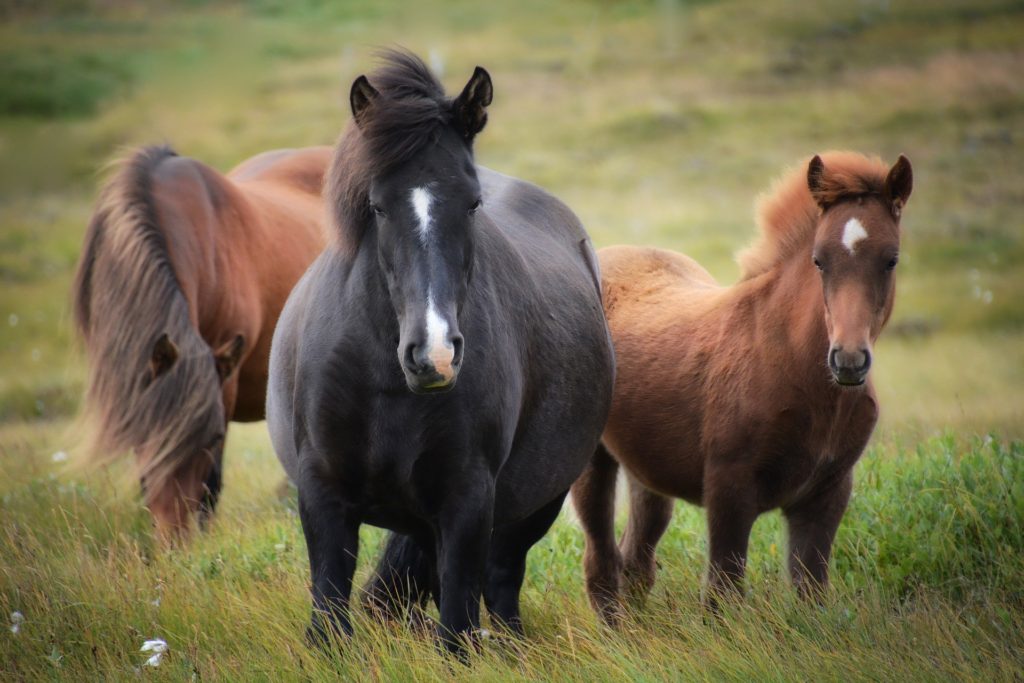
A secure established herd is important to the horses emotional well being. Living in an established herd and with a pair bond will help the horse to feel safe in his environment.
Domestic horses benefit from having a positive relationship with their owner or carer so that they feel safe when away from the herd or their pair bond. It is important to build a positive relationship with your equine to meet his key need of safety.
Learn more about the key needs of the horse, how to meet there needs and why it is important in our online horse care course.
